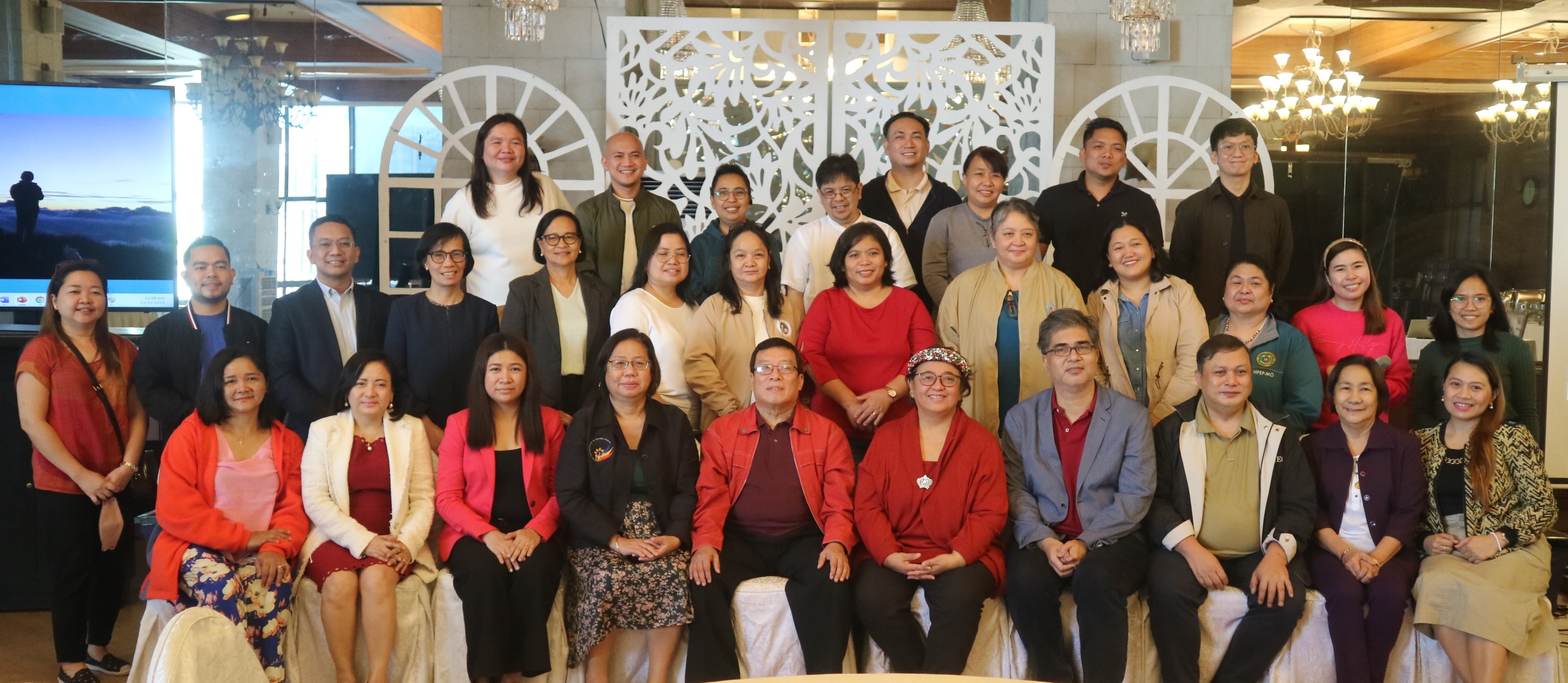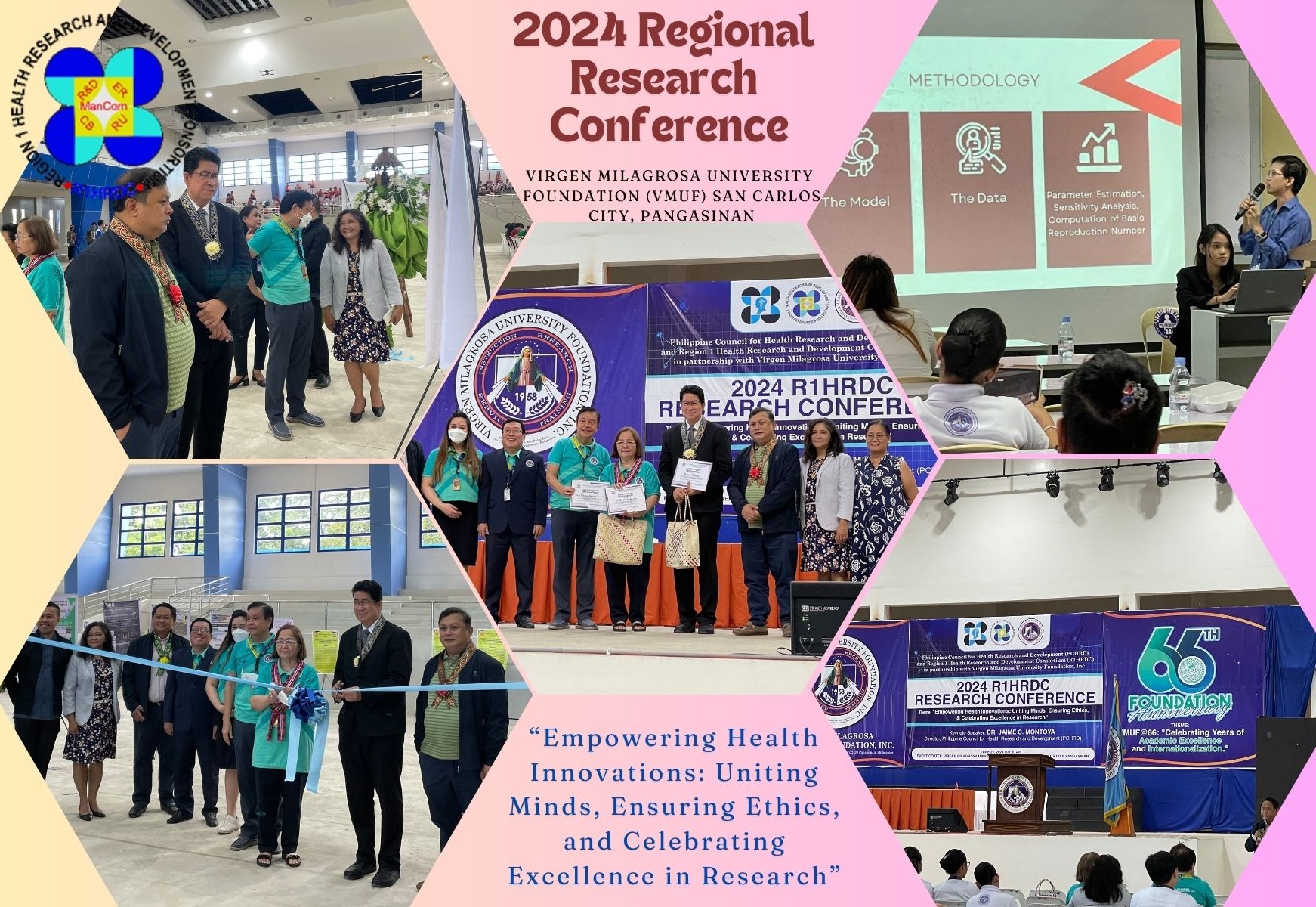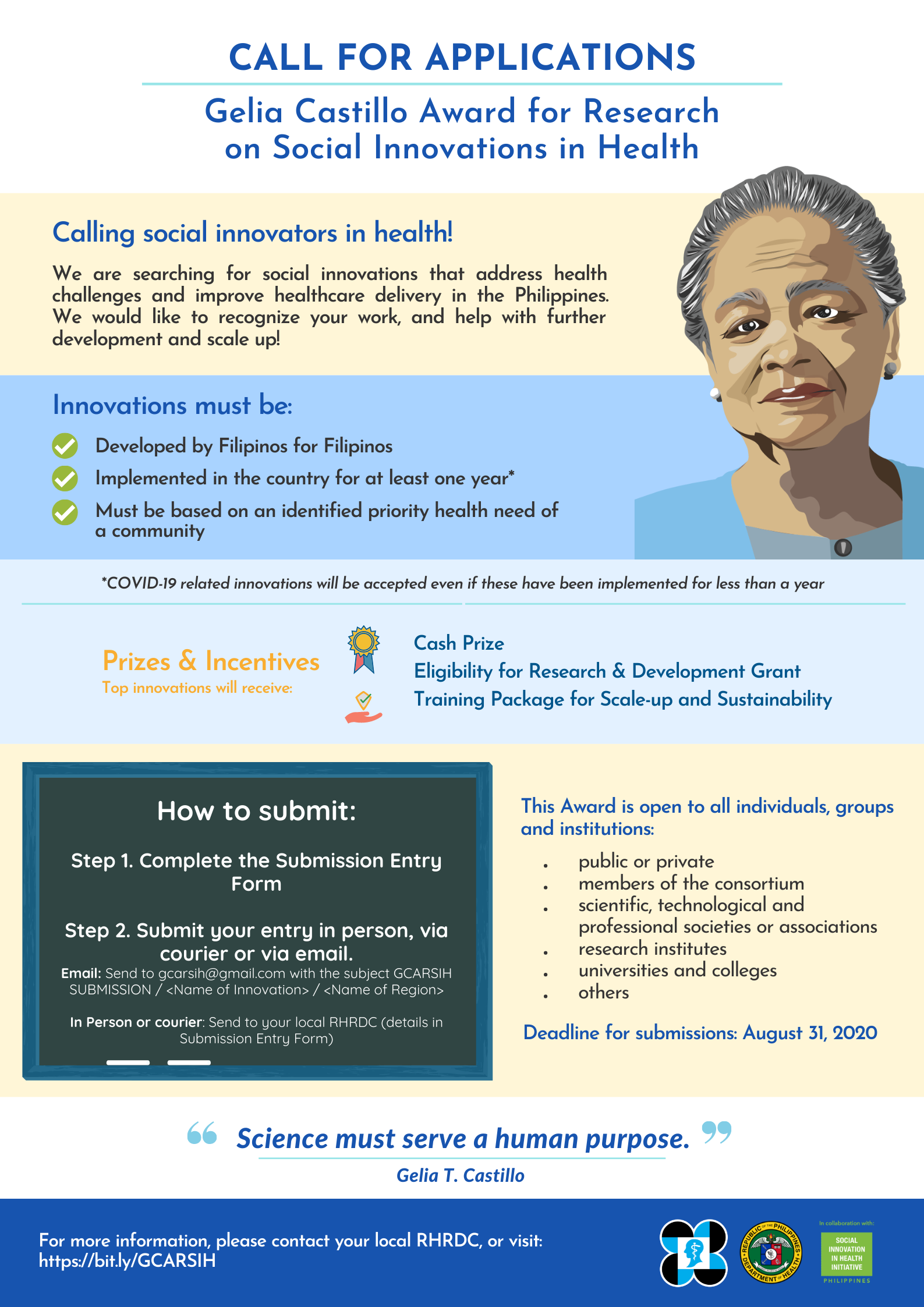The Gelia Castillo Award for Research on Social Innovations in Health (GCARSIH)
Call for Applications 2020
As we acknowledge the restrictions that COVID-19 has imposed upon us has made the process difficult, please note that we are extending the nomination period for GCARSIH up to 21 September 2020. This will give extra time to allow innovators to complete their nominations and allow further promotion of the award. This extension shall also postpone the selection of winners to October 2020
ABOUT THE AWARD
The Gelia Castillo Award for Research on Social Innovations in Health (GCARSIH) aims to recognize the outstanding social innovations that address persistent, societal and health systems challenges. Through the innovators’ experience, we can better understand why and how social innovations create impact, and discover the keys to scale up or integrate these effective interventions into the larger health system.
This Award is open to ongoing social innovations in health developed by Filipinos for the Filipinos. The entry must be implemented in the Philippines.
For the purposes of this Award, social innovations in health (SIH) are defined as new solutions (product, services, models, markets, processes) created by multi-sectoral health system actors. The solutions must address a health need more effectively than existing approaches, and has the ability to enhance people’s capacity to act and take ownership of their own health. Social innovations have health-system changing potential as it changes and strengthens relationships between people and result in a more effective use of available resources.
WHO CAN SUBMIT AN ENTRY?
The Award is open to all individuals, groups and institutions that have successfully developed and
implemented social innovations in health in the Philippines.
Participating institutions may be:
● public or private
● members of the consortium
● scientific, technological and professional societies or associations
● research institutes
● universities and colleges
● others
HOW TO SUBMIT AN ENTRY
Step 1. Complete the Submission Entry Form, which includes a comprehensive write-up of the health innovation, a description of future plans for sustainability or scale-up, and relevant supporting documents.
Step 2. Submit your entry in person, via courier or via email.
a. Email: Send to This email address is being protected from spambots. You need JavaScript enabled to view it. with the subject GCARSIH SUBMISSION / <Name of Innovation> / <Name of Region>
b. In-person or courier: Please refer to Submission Entry Form for the mailing details.
CRITERIA
a) Eligibility. The submitted social innovations in health will be considered for shortlisting based on the following eligibility criteria:
i. Developed by Filipino/s.
ii. Implemented in the Philippines for at least one (1) year, except for COVID-19 related innovations.
iii. Based on an identified priority health need of a community or geographical context.
iv. Complete submission entry form (that has enough information for a fair review) submitted within the set deadline.
b) Selection. The shortlisted, eligible entries will be reviewed by an external independent panel of experts based on the following selection criteria:
• Degree of Innovativeness (25%) - The innovation provides a novel approach to address a systemic health challenge within its local context, providing an alternative to the status quo.
• Significance (15%) - The innovation addresses a health priority of the Philippines (as defined by the National and/or Regional Unified Health Research Agenda), or a priority in a more localized level such as prevalent yet neglected health problem in a town or a marginalized group/ethnic group
• Participatory & Co-owned (15%) - Participatory approach is evident in the development, implementation, and evaluation of the innovation (i.e. contributions from various stakeholders: the patients/families, local health personnel, local leaders, other sectors).
• Potential for Further Research or Scale (15%) - There are clear plans for further research and development of the innovation. The innovation shows feasibility to be applied, replicated and scaled-up to other communities with similar problems, or integrated into the broader health system.
• Inclusiveness (10%) - The innovation has the potential to be used by a large number of people, enhancing equity and access.
• Effectiveness (10%) - The innovation has a demonstrated positive outcome on the health challenge it is addressing.
• Affordability (10%) - The innovation is affordable to the poor who are otherwise excluded in the local context or the solution is more cost-effective than the status quo.














